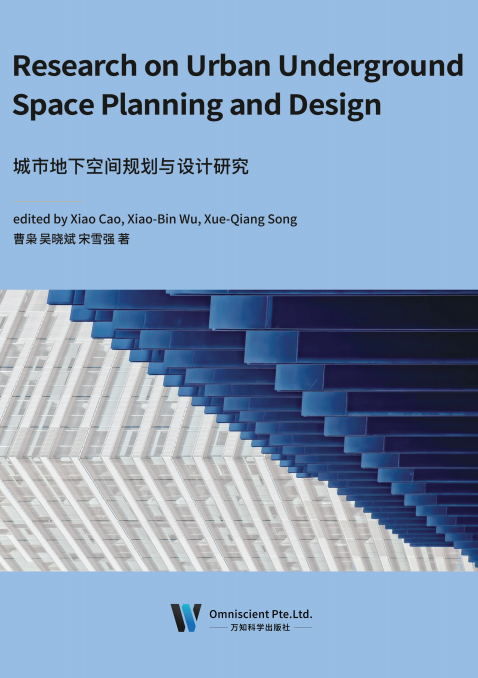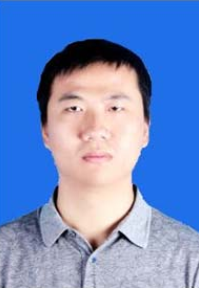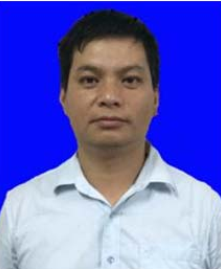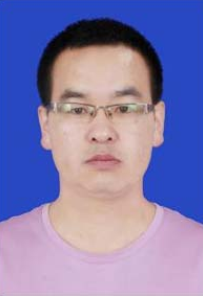
Preface
With the rapid development of the city and the transitional development of resources, it will inevitably bring serious problems such as environmental pollution, energy shortage, traffic congestion and water shortage. A large number of civil engineering projects have sprung up. Every day, a large area of good farmland is replaced by reinforced concrete, and can not be regenerated. The contradiction between living, transportation and environment is becoming increasingly prominent. “Sustainable development” is put forward as a national policy in front of every discipline and industry. Civil engineering circles also comply with the trend of leaving more living soil on the ground for agriculture and the environment, making underground space a safe and comfortable second space for human beings on the earth. People have to ask for living space underground to relieve the pressure brought by the shortage of land resources. Therefore, the 21st century will be the development century of underground space.
The international community has proposed that “the 21st century should be the era for human beings to develop and utilize underground space”, while Japan has proposed to utilize underground space and expand its territory several times. China has also begun to pay attention to the legislative work of underground space utilization, and various regions have begun to carry out the development and planning of underground space. Due to the scarcity of land resources, the increasing pressure of population and the principle of sustainable development of human beings, the 21st century will usher in a new century of global underground space development. At present, it has entered the rapid development stage of underground engineering construction. Because of its particularity, underground engineering construction is a high-risk construction project, so the majority of civil engineers need to sum up and draw lessons from the past underground engineering construction, so that underground engineering facilities can really benefit the people.
前 言
随着城市的快速发展,资源的过渡开发,必然会带来环境污染、能源紧张、交通拥挤和水资源短缺等严重问题,大量的土建工程拔地而起,每天都看到大片良田被钢筋混凝士所取代,并且无法再生,居住、交通、环境的矛盾日益突出。“可持续发展”作为国策提出,摆在每个学科、每个产业的面前,土木工程界也顺应潮流把地面活土多留点给农业和环境,使地下空间成为人类在地球上安全舒适的第二个空间,人们不得不向地下要生存空间,以缓解土地资源紧张而带来的压力。为此,二十一世纪将成为地下空间的发展世纪。
国际上已提出把“二十一世纪作为人类开发利用地下空间的年代”,日本提出要利用地下空间,把国土扩大数倍。中国也开始重视地下空间利用的立法工作,各地区已开始进行地下空间的开发规划; 由于土地资源的稀缺, 人口压力的不断增大,地下工程又符合人类可持续发展的原则, 因此 21 世纪将迎来全球地下空间开发的新世纪。 目前已经进入了地下工程建设的飞速发展阶段。 地下工程建设由于其特殊性,属于高风险的建设项目,因此需要广大土木工程师们多总结和吸取以往地下工程建设中的经验和教训,使地下工程设施起到真正造福于民的作用。

Xiao Cao, male, the Han nationality, senior engineer, registered urban and rural planner, born in Jinan City, Shandong Province in May 1985. He graduated from Huazhong University of Science and Technology in the major of urban planning in 2006. Now he is deputy director of Shandong Institute of Urban and Rural Planning and Design, and he is now in charge. He has been engaged in urban planning and urban design for a long time, and actively participated in the practice and framework of land and space planning in the province. He has presided over and completed more than 50 urban planning projects at all
levels, won more than 20 national, provincial and municipal urban planning awards, and published several papers in important national and provincial academic journals.
曹枭,男,汉族, 1985 年 5 月出生,山东济南人, 2006 年毕业于华中科技大学城市规划专业。现任山东省城乡规划设计研究院副所长(主持工作),高级工程师,注册城乡规划师。长期从事城市规划和城市设计的相关工作,并积极参与省内国土空间规划的实践和架构,主持完成各级各类城市规划项目五十余项,获全国,省,市级城市规划奖项二十余项,并在国家级及省级重要学术期刊发表论文数篇。

Xiao-Bin Wu, male, the Han nationality, bachelor’s degree, born in Xining City, Qinghai Province in May 1978. He graduated from Wuhan University of Hydraulic and Electric Engineering in June 2001. Since 2012, he has been mainly engaged in the construction technology management of Shenzhen Metro Line 7, line 4 and line 12. During this period, he was successively responsible for the development and construction technology management of underground commercial space in Huaqiangbei area of line 7 and Huanggang village, and accumulated rich construction management experience. His scientific research project “Key Construction Technology of Super Large Metro Station in Prosperous Business District” won the urban rail transit technology innovation promotion project.
吴晓斌,男,汉族, 1978 年 5 月生,青海西宁人, 2001 年 6 月毕业于武汉水利电力大学,本科学历。 2012 年以来主要从事深圳地铁 7 号线、 4 号线及 12 号线地铁建设施工技术管理工作。期间先后负责 7 号线华强北片区地下商业空间开发和皇岗村地下商业空间开发施工技术管理工作,积累了丰富施工管理经验,参与的科研项目《繁华商业区超大规模地铁车站施工关键技术》获城市轨道交通技术创新推广项目。

Xue-Qiang Song, male, the Han nationality, bachelor’s degree, born in Dingxi City, Gansu Province in August 1983. He graduated from Lanzhou University of Technology in the major of construction economy and management. Now he works in Minxian Urban and Rural Planning and Design Institute, and was mainly engaged in the comprehensive management of the county’s urban and rural planning. He organized the formulation of the county’s land and space planning system and the implementation of the plan. During this period, he obtained the qualification of national associate constructor and the title of
engineer. He participated in the compilation of land and space planning and published 3 papers.
宋雪强,男,汉族, 1983 年 8 月出生,甘肃定西人,毕业于兰州理工大学建筑经济管理专业,本科学历。现就职于岷县城乡规划设计所,主要从事全县城乡规划综合管理工作;组织编制全县国土空间规划制度及规划计划实施。期间取得国家二级建造师执业资格,工程师职称,参与国土空间规划编制工作,发表论文 3 篇。